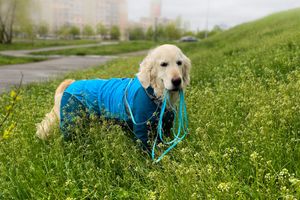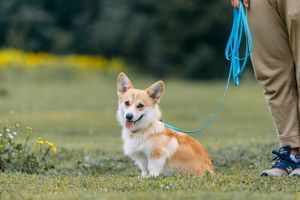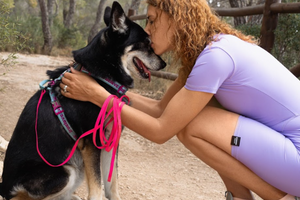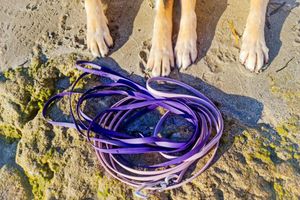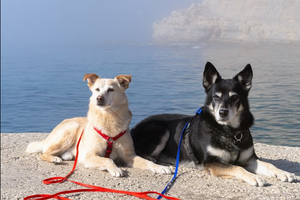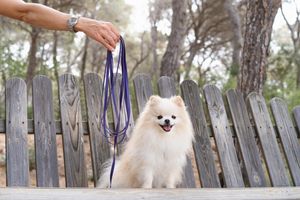When choosing a leash, the first factor to consider is the safety of the dog during a walk. Therefore, the leash should be able to withstand the dog in any unexpected situation (for example, if a frightened dog suddenly makes a sharp tug).
The second thing to pay attention to is the comfort and safety of the leash for the owner. If the leash material cuts or burns the owner's hands in a situation with the same sudden tug, it will be an extremely unpleasant experience.
But there is one more third factor that owners often forget - the comfort of the leash for the dog itself. And it is precisely here, among other things, that the weight of the leash becomes a pressing issue.
Fortunately, more and more owners have been taking this factor into account lately. For example, they choose wide soft collars that do not choke the dog or anatomically correct harnesses. However, the "comfort" of the leash is often not taken into account.
A heavy leash can pull and twist dogs’ collar or harness in different directions, causing discomfort to the dog during walks.
A heavy and bulky carabiner can also be unpleasant for the dog to carry on their back or neck.
While this may not affect some dogs, there are interesting exceptions that we have encountered in our work.
For example, puppies who are just getting used to wearing gear and walking on a leash may resist and refuse to walk if the leash is too heavy for them, as they clearly feel its weight.
Interesting cases have arisen in the practice of our dog behaviour specialist Oksana Galan, where dogs had problems learning the «Сome» command due to, believe it or not, a leash with a very heavy carabiner. The dog simply didn't want to approach the owner, seeing that they were going to attach the leash. But with a switch to lighter and more comfortable gear, the learning process went much smoother.
One of our four-legged team members, an 8-year-old сhihuahua Plusha, has a spine condition. The entire area of his back is quite sensitive and painful as a result. Any heavy gear is a red flag for him during walks (especially a heavy carabiner that hits his sensitive, painful back while moving. The dog experiences real physical discomfort.
Undoubtedly, the examples above are not a mass statistic. Most healthy, active, and well-trained dogs will not pay attention to an extra 20 grams in the weight of their leash or carabiner. But the fact remains: the lighter the gear, the more comfortable the dog feels during walks. And this factor is especially important for miniature dogs, for whom it is harder to find a comfortable leash of adequate length.
At BioIntellect Leashes, we want your walks with your dog to be safe, comfortable, and filled with only positive emotions and experiences. That is why the weight of leashes is one of the key factors we focus on in our work.


